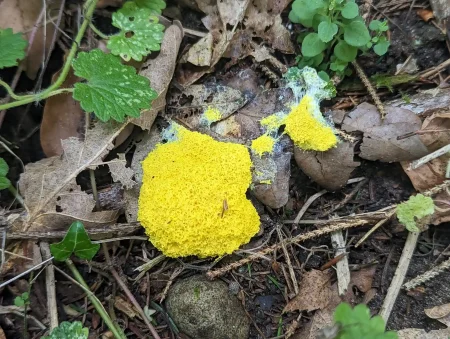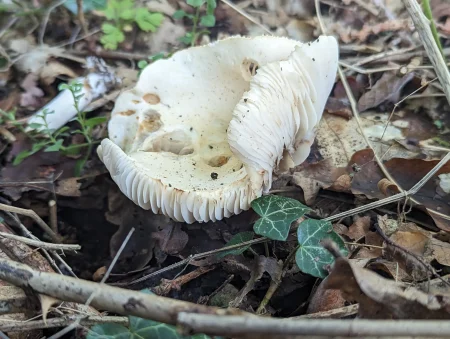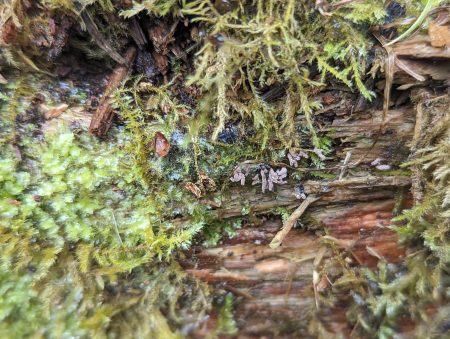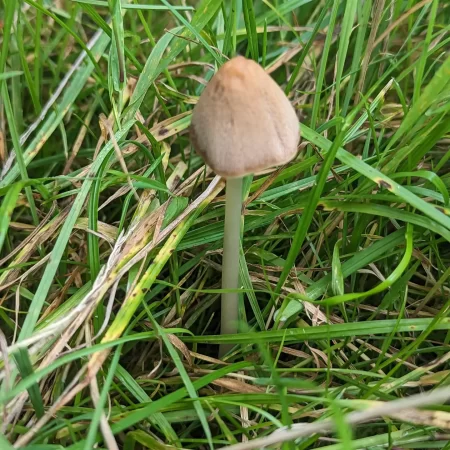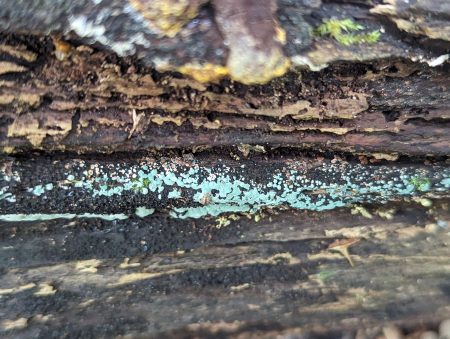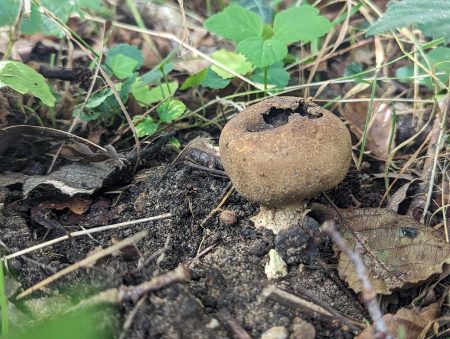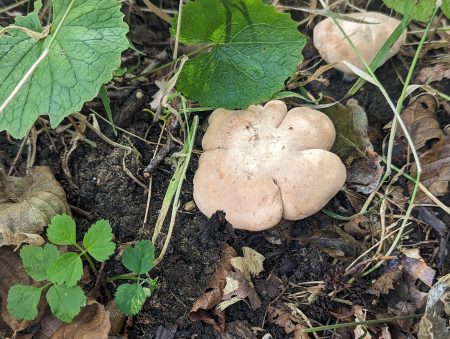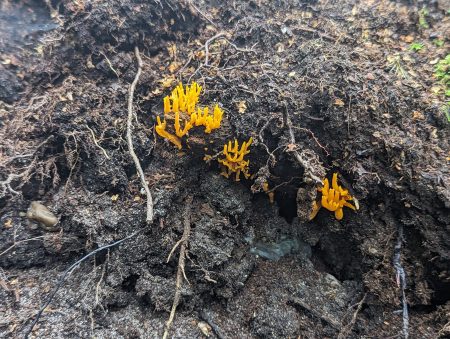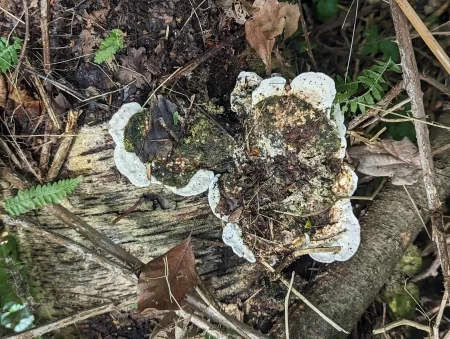Today, the weather was warm, but very damp — sections of the reserve woodland had flooded.
ENTRANCE AREA
Immediately left off the Entrance Path, I found a Fuligo septica aethalium (Fig. 5.0) on rotting leaves.
I then found a group of Tricholoma album (Fig. 5.1) that I saw last year in the same place.
BASECAMP AREA
In the Basecamp Loop, I saw the Peziza group and a small group of pink Stemonitis (Fig. 5.2).
By the path down to Basecamp, the Fuligo cinerea from previous weeks was rapidly disintegrating.
The Stemonitis group from Day 4 had become much smaller.
I also spotted a group of buff Disco fungi (Fig. 5.3) .
At Basecamp, I spotted a small group of Scutellinia scutellata (Fig. 5.4) under one of the log circle logs, and more Peziza (Fig. 5.5).
On a log just behind the activity tent, I found Ramaria stricta (Fig. 5.6) and a group of a white slime mould (Fig. 5.7).
Unidentified
Basecamp
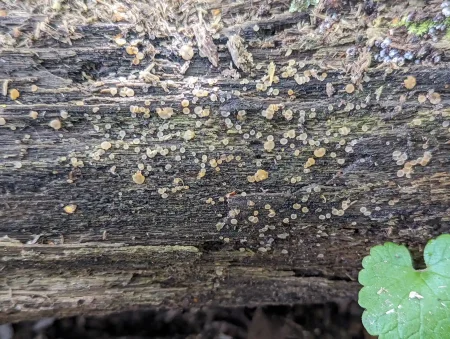
Figure 5.
Scutellinia scutellata
Basecamp
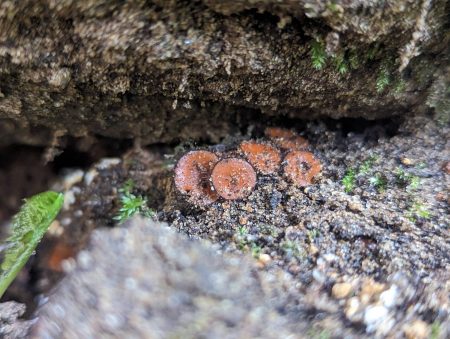
Figure 5.
Peziza species
Basecamp
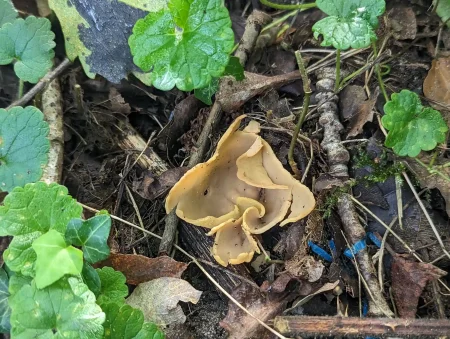
Figure 5.
Artomyces pyxidatus
Basecamp
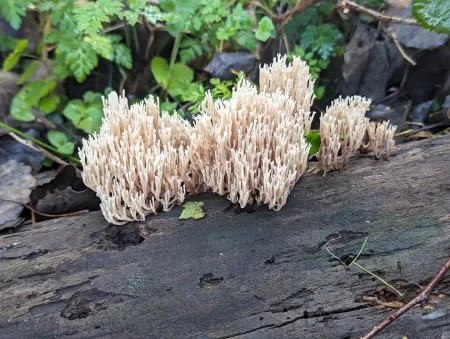
Figure 5.
Unidentified
Basecamp
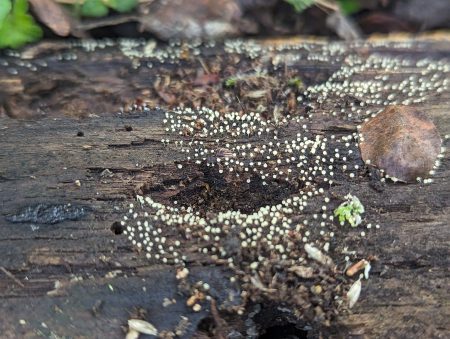
Figure 5.
At the end of the Basecamp Rail Track Path I found a solitary Parasola conopilea (Fig. 5.8) in the tall grass.
THE DELL
In The Dell, I spotted another Fuligo septica (Fig. 5.9) draping off a suspended twig and lots of little brown mushrooms.
The Hemitrichia clavata was still there, but beside it I saw a tiny group of dull pink sporangia (these later turned out to be an earlier form of H. clavata).
In a hazel coppice stump I came across Hypholoma fasciculare, and later in the area some Hymenochaete rubiginosa (Fig. 5.10), Lycogala epidendrum (Fig. 5.11) and Ganoderma applanatum.
Fuligo septica
The Dell
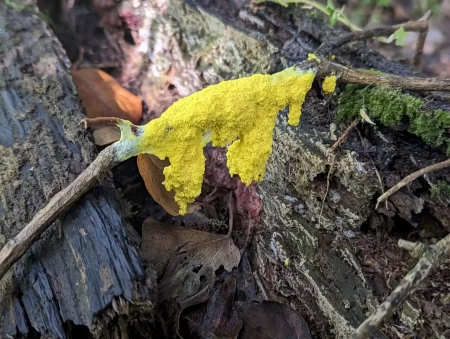
Figure 5.
Hymenochaete rubiginosa
The Dell
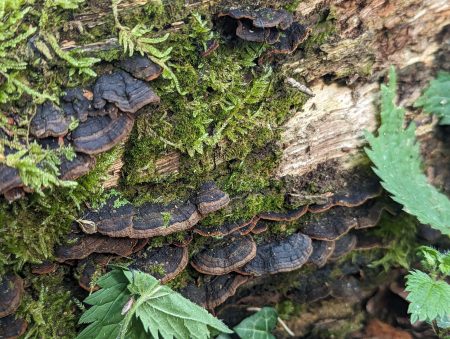
Figure 5.
Lycogala epidendrum
The Dell
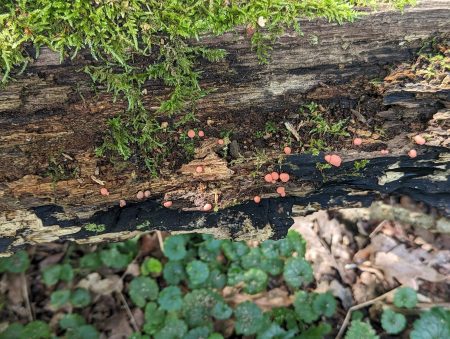
Figure 5.
SANDY GLADE AREA
In the Sandy Glade clearing, as in previous weeks, I saw Hemitrichia clavata from previous days and the Marasmius rotula from Day 2.
I also spotted a green crust fungus (Fig. 5.12).
Down the Fen Trail Turnoff, I noticed a group of Scleroderma verrucosum (Fig. 5.13) with some pink fungi — these may have been Clitocybe gemina (Fig. 5.14).
ENCLOSED AREA
In the Enclosed Area, I saw the Collybiopsis ramealis and the Picipes badius from previous days.
Further in, I found a singular Inocybe (Fig. 5.15), but, more excitingly, I spotted not one but two groups of coral fungi: Clavulinopsis species (Fig. 5.16), and a Clavaria species (Fig. 5.17).
Aside from these I also spotted large groups of Leota lubrica, a Hygrocybe conica (Fig. 5.18), some Peziza species (Fig. 5.19), Scutellinia scutellata (Fig. 5.20) and a silvery grey cup — Humaria hemisphaerica (Fig. 5.21).
Inocybe species
The Enclosed Area
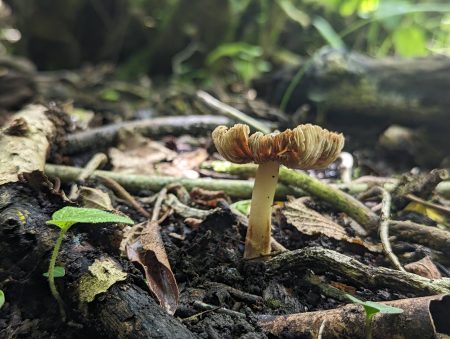
Figure 5.
Clavulinopsis species
The Enclosed Area
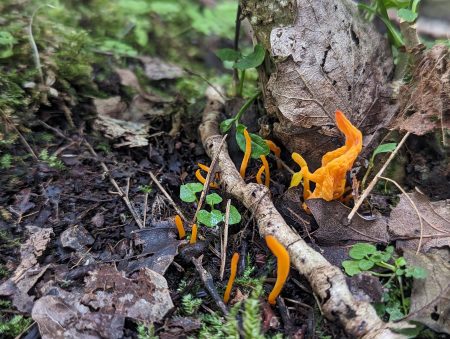
Figure 5.
Clavaria species
The Enclosed Area
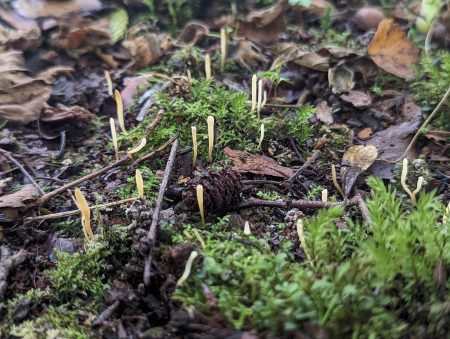
Figure 5.
Hygrocybe conica
The Enclosed Area
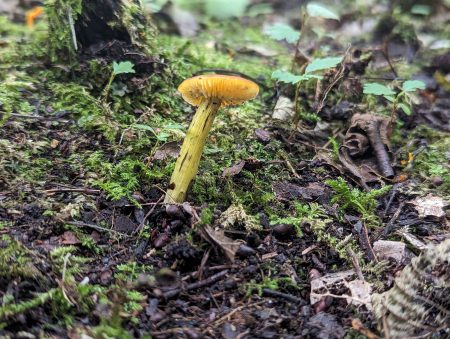
Figure 5.
Peziza species
The Enclosed Area
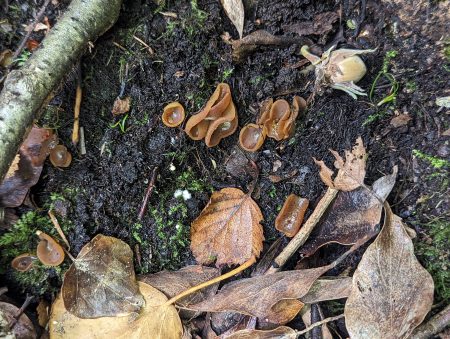
Figure 5.
Scutellinia scutellata
The Enclosed Area
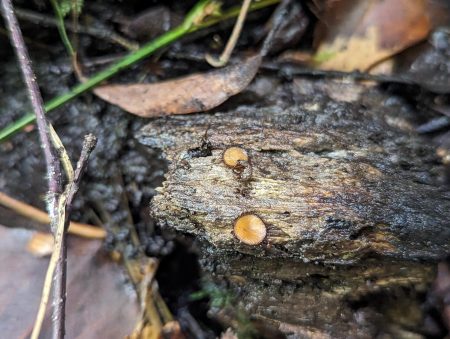
Figure 5.
Humaria hemisphaerica
The Enclosed Area
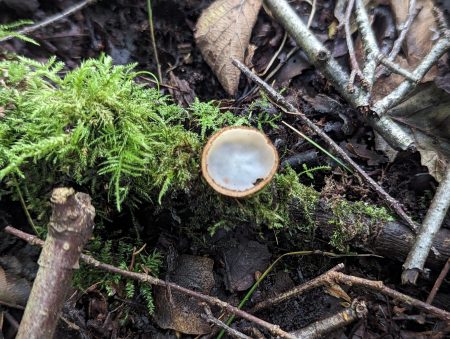
Figure 5.
YEW GROVE AREA
On the woodland path to the Yew Grove, I saw a large group of Coprinellus disseminatus at the base of a tree, and an equally large group of Laccaria bicolour just after the Yew Grove.
I also spotted Calocera viscosa (Fig. 5.22) on the roots of a tree and the Chlorociboria from previous days.
OUTPOST AREA
At The Outpost, I saw the disintegrating spore mass of the Fuligo cinerea from previous days and a small group of Lycogala epidendrum.
TRAIL END AREA
In the Trail End Area, I spotted many Fuligo septica (Figs. 5.23-5.26), Arcyria cinerea, Stemonitis on various rotting log piles and a bracket species. (Fig. 5.27).
OTHER
Throughout the reserve woodland, I found Scleroderma citrinum and Ceratiomyxa fruticulosa.
The Hydnum repandum was still around.
